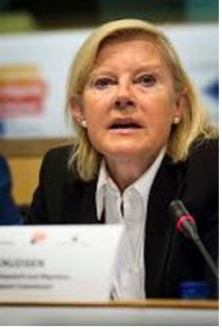
| H.E. Lotte Knudsen is the Head of the Delegation of the European Union to the United Nations and other international organisations in Geneva. Previously she was the Managing Director in the European Union’s External Action service, in charge of global and multilateral issues, as well as human rights. She also served in the European Commission in a number of different posts. She was in charge of developing international relations in DG Justice and Home Affairs, before becoming Director, first on Security, including counter-terrorism issues; then on Justice issues, including legislative negotiations, in DG Justice; and in DG development dealing with thematic issues from migration, to health and human development. Earlier she also worked in the Relex DGs on EU/US relations and the EU Accession negotiations; in the Commission Secretariat General as well as in the Foreign Office in London, on a two-year secondment. She studied at the Ecole National d’Administration in Paris and the College of Europe in Bruges.
|
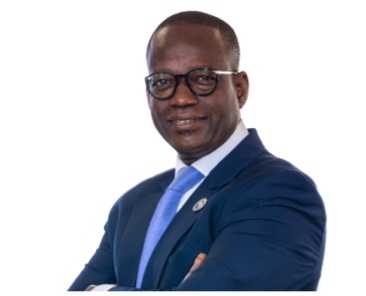
| Mr. Lacina Kone is the Director General and Chief Executive Officer of Smart Africa having joined the organisation in March 2019. He oversees the process of defining and advancing Africa’s digital agenda and has overseen the development of continental blueprints for Africa on Digital Identity, ICT Start-ups and Innovation Ecosystems, Smart Villages and the definition of Africa’s Smart Broadband 2025 Strategy in addition to advancing additional key continental initiatives. In recognition for this work, Mr. Koné has been recognized in 2021 as 12th among the 50 personalities advancing Africa’s digital transformation. Prior to that, Mr. Koné was the advisor to the Prime Minister of the Republic of Côte d'Ivoire (2017-2018), in charge of Digital Transformation and Public Reforms, and was also the advisor to the President from 2011-2017. Mr. Kone is a professional of ICT industry with over 25 years experience in the telecommunications, satellite and intelligent transport system. Prior to that, Mr. Koné held during his career several high level technical and managerial positions with prestigious firms such as Booz Allen Hamilton and Intelsat. Mr. Kone is a graduate of three continents. United Arab Emirates, he obtained a bachelor's degree in electronic engineering, in the UK, it has validated its Polytechnique rank at the University of Brunel, and the United States, his MBA from George Washington University.
He also sits on the advisory boards of Benya Capital in Egypt and Townlabour Technologies in the USA and he is also a Commissioner in the Broadband Commission for Sustainable Development (BBCOM).
|

| Mr. Moses Bayingana is currently the Ag. Head of Information Society Division at the African Union Commission where he has served for the last 14 years. He has 20 years’ experience in the development and implementation of ICT for Development Plans, Strategies and Programs both at national and continental level. He has managed and coordinated a number of continental programs and initiatives including the African Regional Action Plan for the Knowledge Economy (ARAPKE), Africa Internet Exchange System (AXIS) Project and more recently the Digital Transformation Strategy for Africa (2020-2030). Before joining the AU Commission, he was the Coordinator for the development and implementation of Rwanda’s National ICT plans.
|

| Based in Ethiopia, Mr. Andrew Rugege is currently the International Telecommunication Union (ITU) Regional Director for Africa and Representative to the African Union (AU) and the UN Economic Commission for Africa (UNECA). Recognized as a thought-leader and key influencer among African countries, Andrew is responsible for collaboration with and technical assistance to ITU Members in Africa. He believes that by putting ITU’s resources and expertise at the disposal of its Members and building key partnerships between Public and Private Sectors, ICT and Innovation can become the backbone of Africa’s Digital Transformation and accelerator of UN SDGs and AU Agenda 2063.
Andrew leads teams that provide Members States with advice and expertise in ICT Policy, Regulation, Infrastructure, Innovation and others. He is passionate about Youth and Women Empowerment, Innovation and sustainable development through ICTs. His broad experience in the Technology sector spans private and public sectors as well as Academia. In line with the above, Andrew is privileged to serve as a member of the Advisory Board of the Africa50 Innovation Challenge. Prior to ITU, Andrew served as COO at MTN and CEO at Artel Communications both in Rwanda. He previously served as Director of International Business Development at ABSinteractive, USA and Global IT Services Coordinator at United Bible Societies, UK. Andrew holds master’s degrees in Engineering Science, and Computer Science and Business Administration.
|
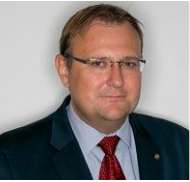
| Mr. Jaroslaw K. Ponder, is the Head of the Office for Europe at the International Telecommunication Union (ITU), representing ITU in Europe and directing actions, projects, initiatives and experts groups targeting 46 countries of the Europe Region. His portfolio includes set of Regional Initiatives for Europe, designed by the European Member States and focusing on the ICT Infrastructure, Digitization, Digital Inclusion, Accessibility, Innovation and Cybersecurity.
Along the professional career, Mr. Ponder has held official positions in the public sector and has been a contributor to the legislative projects having the impact on the public policy. Since 2004 he has been working for ITU holding diverse positions in the General Secretariat, Telecommunication Development Bureau, and Regional Presence, addressing complexity of information society development and digital transformation at national, regional, international level, including United Nations level.For several years he has managed ITU’s work of the United Nations World Summit on the Information Society (WSIS) process, leading towards the establishment of the annual WSIS Forum, WSIS Prizes, WSIS Stocktaking, and others. In his current role he has established several formal coordination mechanisms facilitating the work of UN agencies in advancing digital transformation at the national and regional level.
|
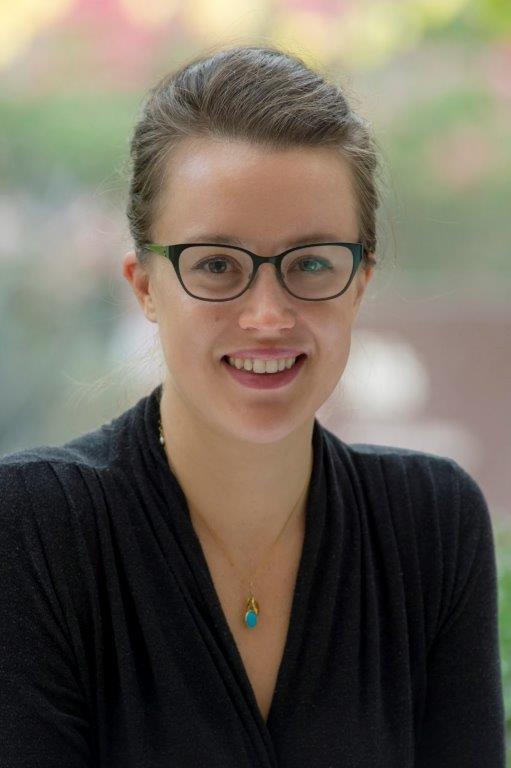
| Ms. Caroline Troein works at the International Telecommunications Union as a lead researcher, and works on projects related to cybersecurity, artificial intelligence, and digital capacity. Previously at the Fletcher School Digital Planet initiative, she co-created the Smart Societies framework for looking at digital societies, and worked on the Digital Evolution Index, African Leapfrog Index, Digital Trust Index, and Global Cost of Cash. She focused on strategic technologies in the global commons, applying systems analytics and security studies to cyber, space, and maritime questions. She has worked as a consultant on cross-country user technology behavior. She has also worked as a Congressional staffer in the US House of Representatives, where her policy portfolio included technology, space, and cyber issues. She has assisted in high level diplomatic conferences on cyber issues, and is strongly engaged with the cyber and space policy communities.
|

| Ms. AnaMaria Meshkurti is the programme officer in the ITU Office for Europe, in charge of digital inclusion, skills, gender, youth, accessibility and innovation matters. Previously she conceptualized and managed the ITU Smart Incubator programme for emerging tech start-ups in developing countries as well as was in charge of ITU-T's non-statutory events including workshops, seminars and forums. She also led trainings for the Bridging the Standardization Gap programme, supporting ITU delegates in the standardization process. She is a communications professional with a strong background in public relation, tech start-ups, innovation and events management. Prior to joining ITU she worked for the World Intellectual Property Organization (WIPO), as well as in various UK based NGOs. She holds diplomas in Business Administration (MBA), Marketing and Communications (MA) as well as International Relations and Global Governance (Bs). |
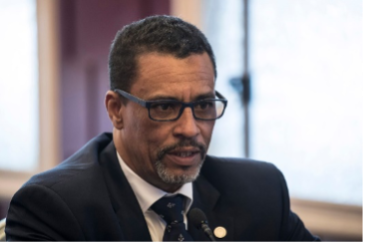
| Mr. Moctar Yedaly is GFCE Africa Program Director. He is graduated from George Washington University, Amity University and Institute of Informatics. He has more than 20 years of International experience in Networks management, resources evaluation and policy preparation. After many years in Telecom industry in the USA and in Africa, Moctar led the Information Society department within the African Union Commission – an Intergovernmental organization with HQ in Ethiopia – from 2007 to 2021. In this capacity he led key Programs and Projects including the drafting and adoption of the African Union Convention on Cybersecurity and Personal Data Protection, the preparation of the first ever report on Cybersecurity trends in Africa, the creation of the AU Cybersecurity Expert Group. He is a thought leader in digital transformation and convergence of disruptive technologies. His achievements are well known in Africa and around the world. He led the drafting and adoption of the AU Digital Transformation Strategy 2020 -2030, the implementation of the African Internet Exchange Systems (AXIS). He is the father of the delegation of the Dot Africa Domain Name. His expertise is regularly sought in high-level panels where he focuses on the implementation of innovative responses to address Digital Economy issues.
|
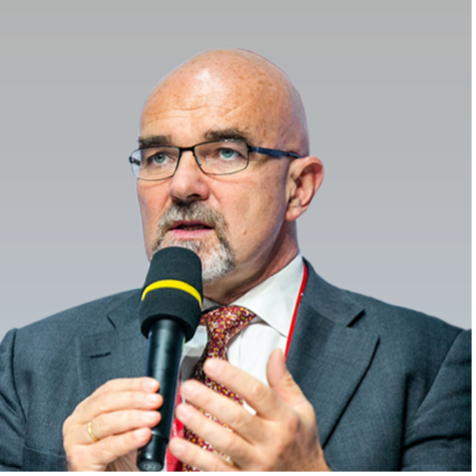
| Mr. Luigi Rebuffi is the Secretary General and founder of ECSO (European Cyber Security Organisation) as well as founder and Secretary General of the Women4Cyber Foundation. After graduating in Nuclear Engineering from Politecnico di Milano (Italy), he worked in Germany on the development of high power microwave systems for the next thermonuclear fusion reactor (ITER). He continued his career at Thomson CSF / Thales in France where he took on increasing responsibilities for European Affairs (R&D) in different sectors: telecom, industrial, medical, scientific, becoming in 2003 Director for European Affairs for the civilian activities of the Group. He created EOS (European Organisation for Security) and coordinated its establishment in 2007 being its CEO for 10 years. Until 2016 and for 6 years, he was an advisor to the European Commission for the EU Security Research Programme and President of the Steering Board of the French ANR for security research. In 2016 was one of the founder of ECSO and signed with the European Commission the cPPP on cybersecurity. In 2019 he created the Women4Cyber Foundation to promote participation of women in cybersecurity and became its Secretary General and member of the Administrative body. In 2020 he was nominated in the list of “IFSEC Global Influencers in security - Executives”. |
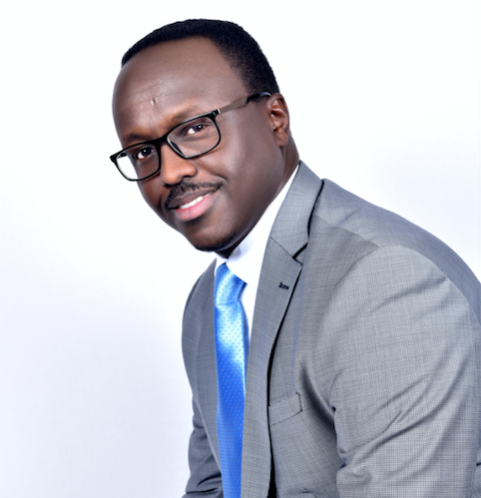
| Mr. Didier Nkurikiyimfura is the Director of Technology and Innovation at the Smart Africa Secretariat. In his current capacity of Chief Technology and Innovation Officer (CTIO)of the institution, he supports the Director General and CEO of Smart Africa on the overall policy and regulatory matters, organizational strategy, programme and project management, operations, partnership and resource mobilization. He also leads the implementation of several cross-border tech projects in Africa, such as the intra-African cross-border fiber connectivity, increasing Africa’s Internet affordability and accessibility, regional Data Centers, Smart Cities, African entrepreneurship and innovation ecosystems strengthening, interoperable pan-African Digital ID and the Smart Africa scholarship fund among others, with the ultimate goal of contributing to Africa’s economic growth and job creation. He strongly believes that Africa’s time is now and that Africa’s socio-economic transformation will be accelerated by investments in technology, innovation, through innovative strategic partnerships. Aside his official Smart Africa duties, Didier currently serves in as Chairman of the board of Directors of Rwanda Civil Aviation Authority (www.rcaa.gov.rw) as well as Irembo Ltd (www.irembo.gov.rw) – the Rwanda single platform for the provisioning of all Government to Businesses (G2B) and Government to Citizens (G2C) eServices. He also serves as a board member of the Rwanda Broadcasting Agency (www.rba.co.rw). Prior to joining Smart Africa, Didier served as Director General in charge of ICT at the Ministry of Youth and ICT of the Government of Rwanda from 2012 to 2016. In that capacity, he led the development and implementation of several strategic initiatives including the 2015-2020 National ICT plan (Smart Rwanda Master Plan), and a wide range of national ICT policies and strategies for Rwanda in the following areas: broadband, digital literacy, cybersecurity, e-waste, open data, e-Government and ICT private sector development, just to name a few. Prior to that, Didier worked at the Rwanda Development Board (RDB) from 2010 to 2012 where he served in the capacity of head of the Cyber Security Division, a division that plan, implement and coordinate Rwanda’s cyber Security. During his tenure, he initiated several National ICT Security projects, including the Rwanda Computer Security Incident Response Team (CSIRT), the National Cybersecurity Awareness Programme, the National Public Key Infrastructure (PKI) and the Government Security Operations Centre (SOC). From 2009 to 2010, Didier worked at the Rwanda Information Technology Authority (RITA) where he respectively served as Director of the National Computing Center (NCC) and Director of the National Data Center (NDC), which built the first Tier-3 Government Data Center in East Africa in 2010, powered by a complex cloud-computing platform. From 2003 to 2009, Didier taught various Computer Science related courses when he was working at the National University of Rwanda (NUR) as Assistant lecturer at the Computer Science department. From 2005, he also took over the role of Director of the University’s Computing Center and led a multidisciplinary team in charge of all ICT related functions of the university, which had then4 campuses, over 11,000 students and over 1,200 academic and administrative staff. Didier has over 17 years of experience in the ICT Sector and he holds a Bachelor of Science Degree in Computer Science and a Master of Science Degree in Computer Science and Software Engineering from the National University of Rwanda. Didier enjoys reading, writing, workouts, swimming and spending time with friends and family. He is fluent in English and French.
|
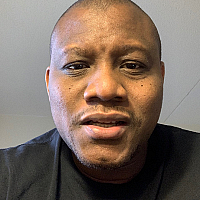
| A researcher at heart, Mr. Jean-Robert Hountomey's research focuses on law, technology, and Internet governance issues. An Internet pioneer in West Africa, he is also a founding member of the Africa Forum of computer security and incident response team (AfricaCERT) and the African Anti Abuse Working Group. He has worked with government officials, industry, and academia on Internet policy issues, capacity building, information security, product security, secure software development life cycle, and privacy risk management for two decades. He has contributed to the PSIRT and the Multi-Vendor Coordination frameworks from the Forum of Incident Security Response Teams (FIRST), the CVE outreach and Communications Working Group (OCWG), the African Union Cybersecurity Expert Group, the Interpol Africa Working Group, the UN open-Ended Working Group (OEWG), ICANN, ISOC, AfriNIC, AfNOG, AfrISPA.
|

| Mr. Jeremy Ketteringha is an ex-senior civil servant with 34 years of experience working on UK Government capability building programmes. Prior to leaving the civil service in September 2017, he spent five years as programme director for the UK’s National Cyber Security Centre (NCSC) cyber security programme with responsibility for implementing the UK national cyber security strategy. Since September 2017 he has been working as a specialist consultant for the Home Office working with international partners on the national cyber risk assessment (NCRA) and cyber security capacity building.
|

| Ms. Natalia Spinu is the Chief of the Government Cyber Security Center (CERT-Gov) at ITSEC (Information and Technology and Cyber Security Service) and has more than 9 years’ experience in Cybersecurity, in various areas as: ICT project management; ICT strategy development; Information security implementation and audit; ICT security policy development. She has managed cybersecurity projects for the government and also has as responsibility strategic planning, as well as international and intergovernmental cooperation and capacity building. She’s an effective contributor to the cybersecurity community, promoting collaboration via knowledge sharing, organizing various cybersecurity-related workshops, events, and meetups, and is often engaged as a speaker in various national, regional, and international forums, conferences and seminars in cybersecurity and has published articles for publications both locally and internationally. Ms. Spinu is also a co-seminar leader on the Program on Cyber Security Studies (PCSS) from the George C. Marshall European Center for Security Studies (from 2017 - 2020). Also Ms. Spinu was a mentor within the program Women in Cyber Mentorship Programme for empowering women in the cybersecurity sector (March – August 2021), organized by the International Telecommunication Union (ITU). Natalia has a Master Degree in International and European Security, University of Geneva, Switzerland, a Master Degree in Computer Science, Technical University of Moldova and holds various Cybersecurity Certificates.
|
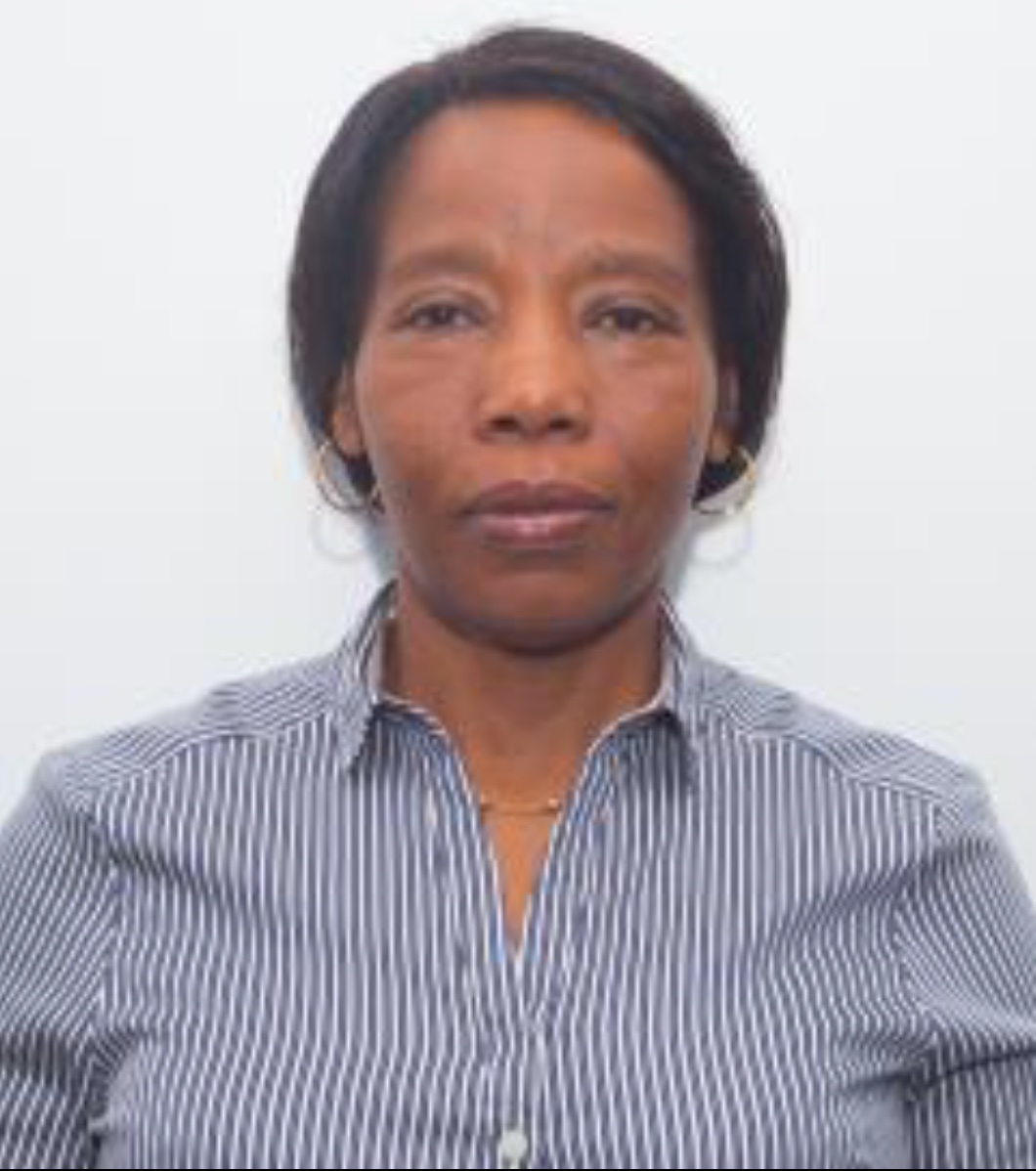
| Ms. Connie Francis works with Tanzania Communications Regulatory Authority, leading the Directorate of ICT Applications and Services to achieve the Authority’s strategic objectives by providing strategic leadership and general management of Authority’s operations. She is Tanzanian, a professional in Information, Communications and Technologies (ICT) specialist with a broad knowledge of internet and communications resources that include numbers, names and spectrum, ICT regulations and security of communication realm with more than 15 years of working experience. Considerable expertise in leadership and management, cyber security and emerging technologies. Represents Tanzania in Government Advisory Group Internet Corporation for Assigned Names and Numbers (GAC/ICANN), Forum for Incidents Response Teams (FIRST), and Participates in ITU Study Group 17, Working Part I Question 4 responsible with Cybersecurity.
|
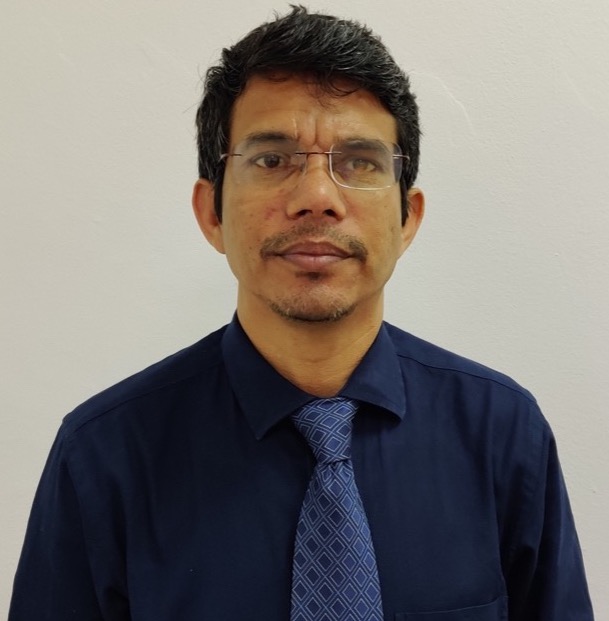
| Dr. Kaleem Ahmed Usmani is heading the Computer Emergency Response Team of Mauritius (CERT-MU), a national CERT since May 2010. It operates under the umbrella of the National Computer Board, an autonomous body under the Ministry of Information Technology Communication and Innovation, Republic of Mauritius. His experience of 18 years in the ICT industry spans over cybersecurity , network engineering, system administration, IT management and project implementation. Currently, he is involved in implementing the national level cybersecurity projects for Mauritius and also involved in initiating regional cybersecurity projects for IOC, SADC and COMESA region. He is the Mauritian representative to UN Group of Governmental Experts (UNGGE) on Cyber for the period 2019-2021.
|